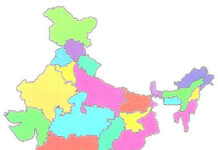Ashoka | Brief Biography
Ashoka | Brief Biography
Ashoka the Great was the third emperor of the Mauryan Empire, ruling from 268 BCE to 232 BCE. He was the grandson of the empire’s founder, Chandragupta Maurya, and the son of the second emperor, Bindusara. Ashoka’s reign was marked by a series of military conquests, followed by a transformation into a Buddhist ruler known for his commitment to nonviolence and social justice.
Early Life and Rise to Power:
Ashoka was born in 304 BCE to Bindusara and his queen, Dharma. As a young man, he was appointed as the governor of Avanti, a region in central India. According to some sources, Ashoka was a cruel and ambitious ruler who was known for his ruthless tactics in putting down rebellions and expanding the Mauryan Empire. However, other sources suggest that Ashoka was a fair and just administrator who was beloved by his subjects.
Ashoka’s rise to power came after a violent struggle for succession following the death of his father, Bindusara. According to the Buddhist text “Divyavadana,” Ashoka was the governor of Ujjain when he learned of his father’s death. He quickly marched his army to Pataliputra, the capital, where he defeated his half-brother and other contenders for the throne, securing his position as emperor.
Military Conquests:
Once he had secured his position as emperor, Ashoka began a series of military conquests to expand the Mauryan Empire. He conquered the kingdoms of Kalinga, Ujjain, and Taxila, among others. According to the ancient text “Ashokavadana,” the Kalinga War was a particularly brutal conflict that left more than 100,000 people dead and many more injured. The suffering caused by the war is said to have deeply affected Ashoka, leading him to question the value of conquest and violence.
Conversion to Buddhism:
Following the Kalinga War, he underwent a dramatic transformation. He converted to Buddhism and renounced violence, becoming known as a “Dharma Raja” or a “Righteous King.” Ashoka’s commitment to Buddhism is evident in his rock edicts, inscriptions carved into rocks and pillars throughout his empire that outline his commitment to nonviolence and social justice. In these edicts, Ashoka encourages his subjects to live according to the principles of the Buddha, emphasizing the importance of kindness, generosity, and ethical conduct.
Legacy:
Ashoka‘s legacy is multifaceted. He is celebrated in Buddhist texts as a model of a compassionate ruler, committed to peace and social justice. His rock edicts, which survive in several different languages and scripts, are an important historical record of his reign and his commitment to Buddhism. Ashoka’s conversion to Buddhism is also significant because it helped to spread the religion throughout India and beyond. 0 0 0.
N.B. This article originally belongs to the book entitled ‘Brief Biographies of Eminent Generals and Conquerors’ by Menonim Menonimus.
Books of Biography by M. Menonimus:
- The World Writers-Brief Biographies
- Introduction to World Writers
- Introduction to World Personalities
- Love of Reputed Persons
- Brief Biographies of Prominent Bengali Writers
- Brief Biographies of Eminent Monarchs
- Brief Biographies of Ancient Thinkers and Writers
- Brief Biographies of Eminent Generals and Conquerors ..
Books of Literary Criticism by M. Menonimus:
- World Short Story Criticism
- World Poetry Criticism
- World Drama Criticism
- World Novel Criticism
- World Essay Criticism
- Indian English Poetry Criticism
- Indian English Poets and Poetry Chief Features
- Emily Dickinson’s Poetry-A Thematic Study
- Walt Whitman’s Poetry-A Thematic Study
- Critical Essays on English Poetry
- Tawfiq al-Hakim’s Novel: Return of the Spirit-An Analytical Study
- Tawfiq al-Hakim’s Novel: ‘Yawmiyyat Naib Fil Arayaf’-An Analytical Study
- Analytical Studies of Some Arabic Short Stories
- A Brief History of Arabic Literature: Pre-Islamic Period (500 AD-622 AD)
- A Brief History of Arabic Literature: Early Islamic Period (622 AD-661 AD)
- Reviews on William Shakespeare’s Works
- Reviews of Charles Dickens’ Works
- Reviews of John Milton’s Literary Works
- Reviews of Some Iconic Travelogues …
Additional Searches:











